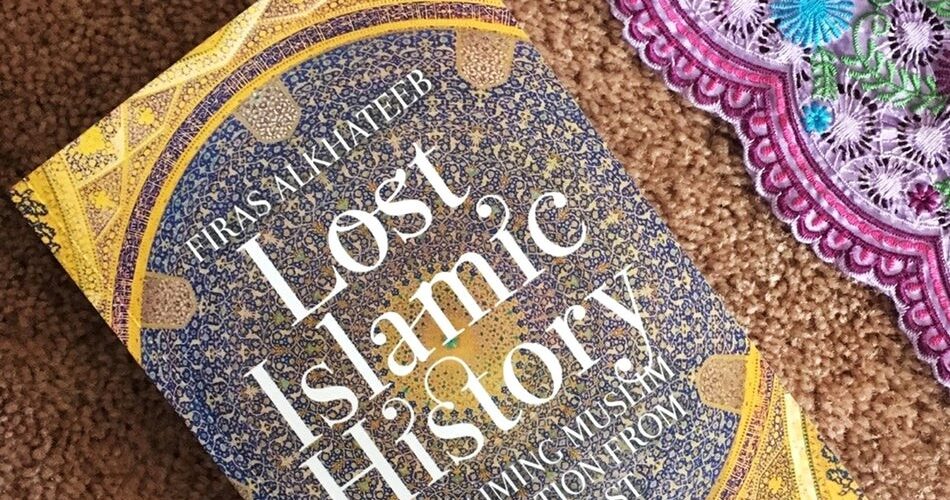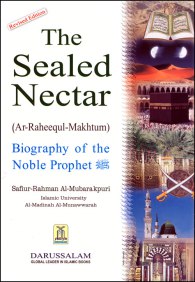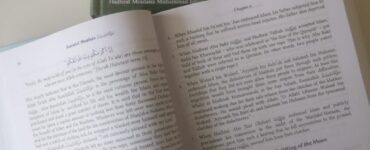Title: Lost Islamic History
Author: Firas Al Khateeb
Pages: 248
Publisher: Hurst Publishers
A common question amidst the masses and even scholarly circles seems to be regarding a good Islamic history book. Especially in recent times with the changing political landscape, it has become extremely important for Muslims to connect with their glorious past. A nation that is not connected with their past cannot navigate their future effectively. This seemed a rather difficult question to answer conclusively with one book.
However, this question seems easier to answer after reading Firaas Khateeb’s ‘Lost Islamic History’ as it serves as an introductory text to Islamic History. To keep the summary brief, I have outlined some of the key themes and subjects discussed in the book to motivate readers. I would recommend all Muslims to read this.
Another common misconception is the lack of importance of Islamic History and Muslim contributions to our world today. The issue for western Muslims, being brought up in the mainstream western education, is their lack of awareness of Islamic History and failure to recognise its importance. Studying in British schools, our historical education begins with the Romans, moving onto Anglo-Saxons, Tudors and the tumultuous World Wars and Cold War era.
Yet, this creates a limited western, albeit British worldview. Rather, the historical lens we choose to focus on greatly affects our understanding of how events are interpreted and their relevance to the modern world. Thus, Khateeb addresses this issue and incredibly completes the task of writing a book with an Islamic lens, so Muslims can appreciate an alternative worldview, studying events that correlate with the time periods they study in the education system.
Over the last 1400 years, Islamic History underwent a series of political, military and intellectual expansions that stretched from the lands of Arabia to Africa and from Southern Asia to Europe. Undoubtedly, parts of our past will bring great smiles and a sense of pride. Yet, other events will bring unease, shame and familiar phrases of ‘if only’. Al Khateeb does an impressive job of sketching a brief, yet comprehensive outline of our Islamic history in 250 pages. He compiles heroic events, tearful losses and tumultuous periods in chronological order.
Beginning from the life of our Beloved Prophet Muḥammad (Peace Be Upon Him) to the important issues dealt with by the Rightly Guided Caliphs, Khateeb explains the factors that shaped the early years of Islam. Through an objective lens and factual narrative, which Khateeb sticks with throughout his book, the turmoil of the post Alī (May Allāh be pleased with him) era is highlighted as a key shaper of the Muslim world today, of the Sunnī and Shīʿah sects. Navigating the historical events and issues that directly resonate with competing strands of Islamic thought is pivotal in understanding the Muslim Ummah today.
Thus, in his well-crafted book, he has chronologically summarised:
-
- The era of the rightly guided caliphate
-
- Umayyad Dynasty and their decline
-
- Emergence of Abbāsid Dynasty and their downfall
-
- The great Salāḥuddīn Al-Ayyūbī and the Crusaders
-
- The brutality of Genghis Khan and the conquest of Baghdad
-
- The rise and fall of Muslim Spain and the conquest of Granada
-
- Mehmet II conquering Constantinople, modern day Istanbul
-
- The Rise of the Ottomans and problems with the administration
-
- Aurangzeb and the Mughal Empire
-
- Summary of Key Revivalists
-
- A short summary on the history of Palestine and the Balfour Declaration
Through each section, Khateeb highlights key themes that recur throughout Islamic History. Firstly, as Muslims, our history teaches us that our success lies in following the meticulous lifestyle and model shown to us by our beloved Prophet Muḥammad (PBUH); this is when the Ummah reached great heights. Secondly, the strength of the Ummah lies in unity tied by common faith, not based on ethnicity, culture or nationalism. Thirdly, when worldly riches and love of this mortal world creeps into the hearts of the leaders and the masses, the fall and decline of the Ummah is inevitable. This occurred on numerous occasions, from the Umayyad and Abbāsid dynasties to the Mughal and Ottoman empires. Finally, Khateeb characterises the typical life span of most empires and dynasties, starting with exponential growth and great ethos, followed by a continuation of the first generation’s hard work until greater emphasis is placed on luxuries, palace life and court culture. By the third generation, the decay is complete as leaders are totally consumed by the love of the world to the extent that the state cannot protect itself from internal and external threats. Thus, Khateeb encapsulates the lessons to be derived from each success and fall, from which we, as ordinary Muslims living in communities and societies can take heed.
The book is written marvellously, as it explains many interconnected aspects of Islamic history. The threads of politics, society, military, culture, sciences and arts are interleaved throughout the narrative, providing a thorough and concise outlook. The legacies of each period are objectively examined, and related to the modern day, effectively engaging the reader.
Therefore, I strongly encourage all Muslims, especially my young friends, to read ‘Lost Islamic History’ from cover-to-cover to enlighten your minds of our great, and at times not-so-great Islamic History. It is recommended that this book is read in short segments, a chapter at a time, to allow a full grasp and understanding of each period, which should be digested before continuing. Finally, we realise the importance of studying History, as it helps us understand our world today, whilst also being aware of the dangers of not learning from History, because it often repeats and mistakes are not learned from.
May Allāh bless the author and revive our glory days of the past. ĀmĪn.
– Reviewed by: Mawlana Muhammad Kabir






